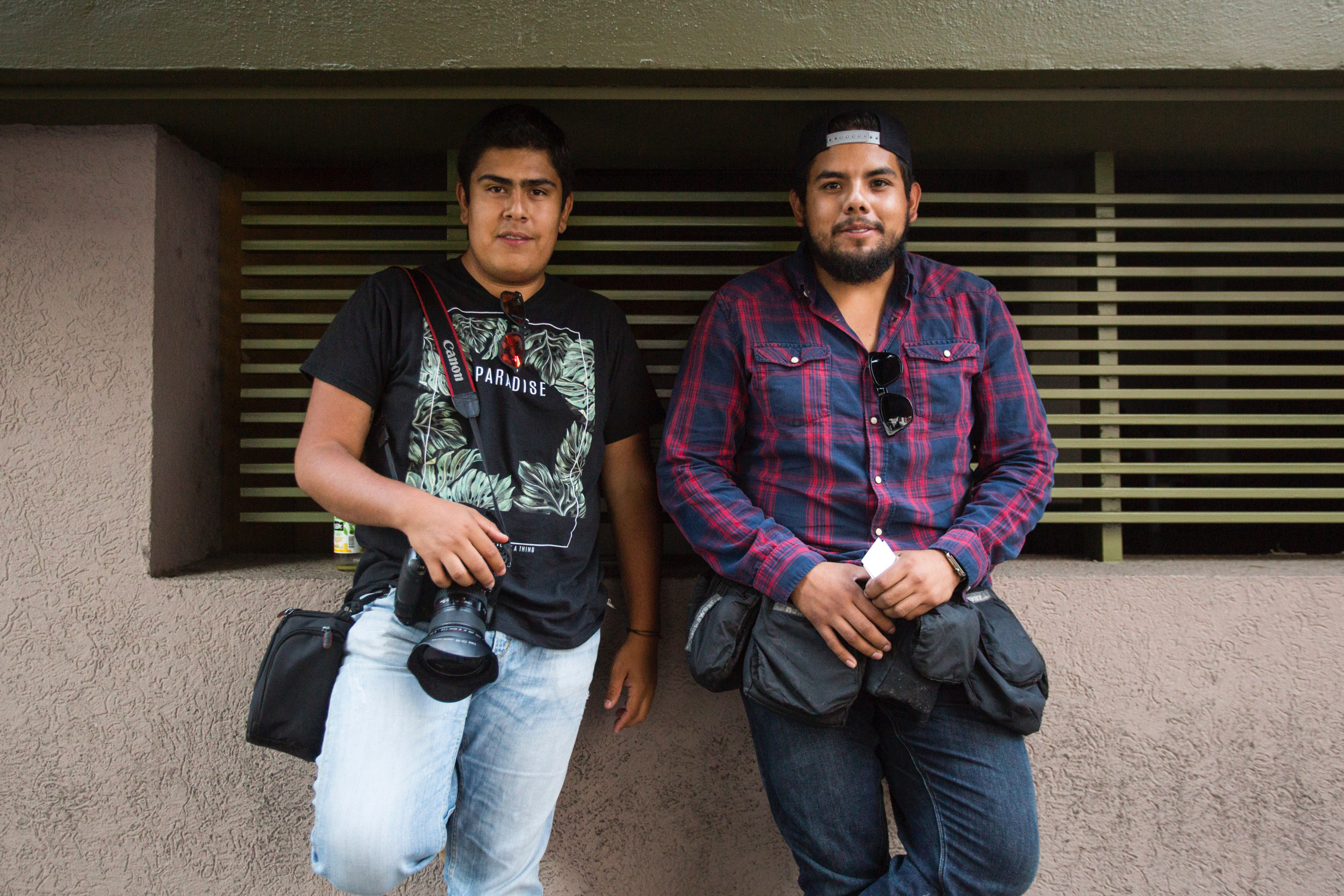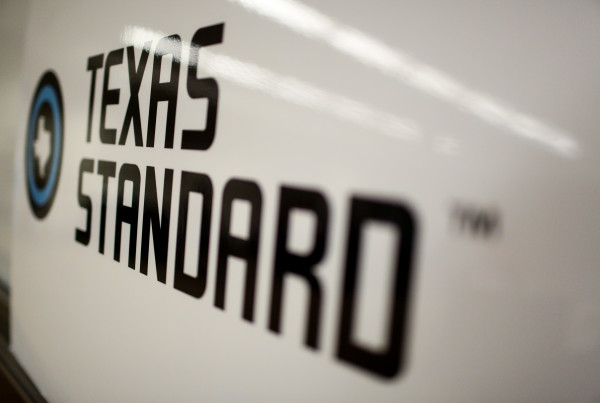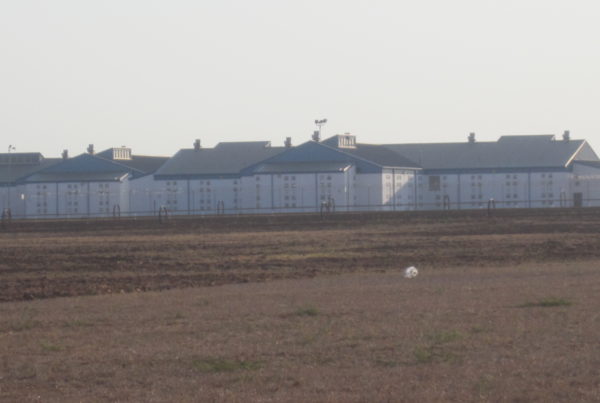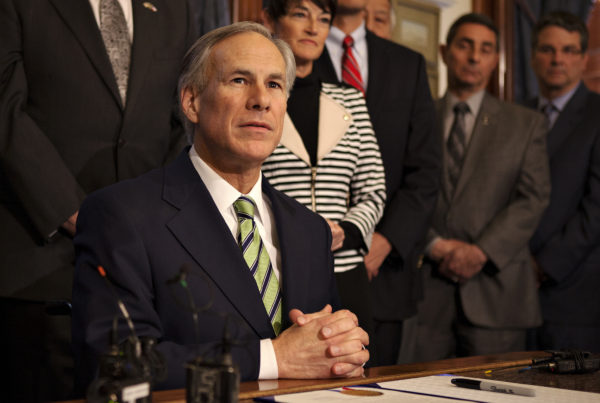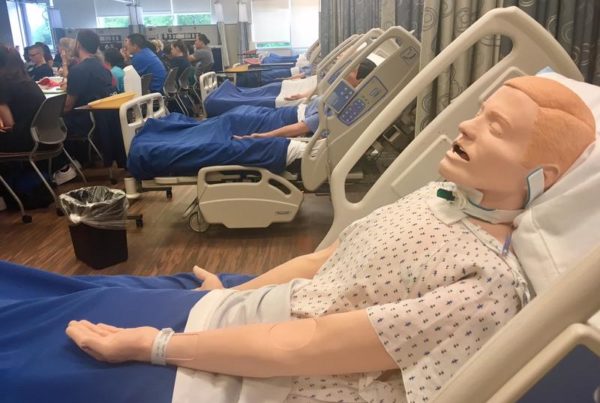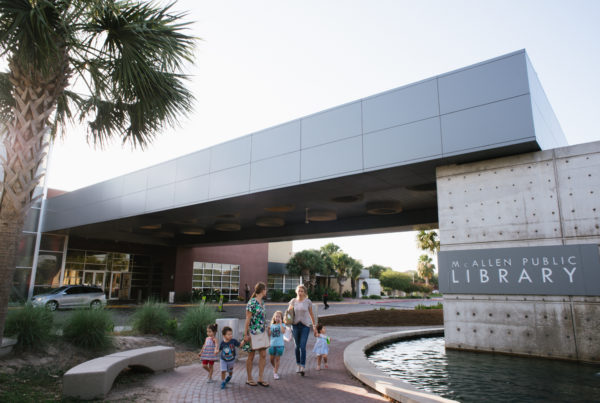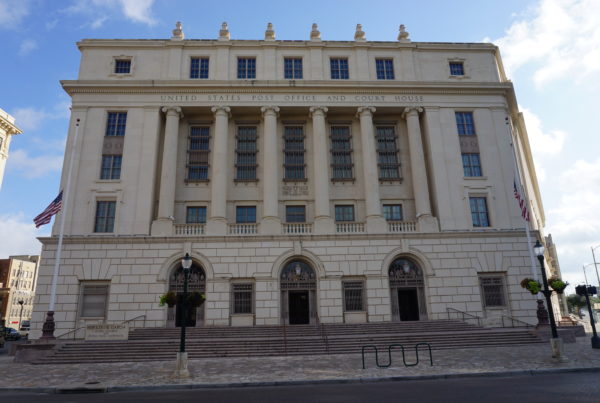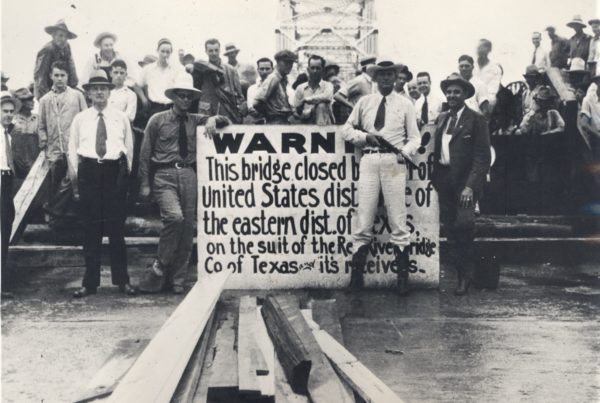To say that reporters in Mexico face challenges would be a huge understatement. Seven journalists have been murdered there so far this year and over the last 15 years, dozens have been kidnapped and are presumed to be dead. What’s more, at a recent press conference, members of the Mexican media accused President Enrique Peña Nieto’s government of infecting their personal cellphones with malware to spy on them.
The levels of hostility are such that one would think reporters would be leaving their posts in droves. But that’s not the case.
When I met Ricardo Ivan Arias and Rodolfo Lopez, both had cameras with huge lenses strapped around their necks.
“Are you members of the press?” I ask.
“Si,” one of them says.
Their federally issued badges confirmed it. The photojournalists, both in their 20s, were reporting on that morning’s murder of the top police commander in Morelia, Michoacan, in Western Mexico.
Have Arias and Lopez witnessed any aggression against the media?
In Spanish, one of them replies: “Just today, the police roughed up a couple of female reporters at this morning’s press conference.”
The vast majority of attacks are like that: carried out by police or by elected officials.
Article 19, a London-based nonprofit that promotes freedom of expression, reports that this year alone, there have been 426 reported attacks on the press in Mexico. That group confirms that more than half of those attacks were carried out by government officials.
Arias says his camera once captured the beating of a reporter with a metal pipe. For his part, Lopez once captured the images of a vehicle as it was fleeing. It carried a reporter who had been abducted.
Arias and Lopez say there have been times when the police have attacked them and the community has come to their rescue. But other times, it’s the community that turns on the media. It all depends on the story, they say.
Their lives are quite literally on the line. So why do they do this job? Lopez says he does it because he loves it; he loves learning something new everyday. For Arias, it goes beyond that.
In Spanish, he says: “We have power. We have the power to change this by leading public opinion, and that is amazing.”
It may seem the only reason these two journalists think the way they do is because they’re young, perhaps even naïve. They’re at the age when they still think they can change the world.
But seasoned reporters aren’t leaving the profession either. Mexican news anchor Karla Iberia Sanchez is as recognized and respected in her country as Barbara Walters or Nina Totenberg is in the U.S. She’s interviewed world leaders, and is so inquisitive that her investigations have put her in danger. Sanchez could easily leave Mexico for the sake of her safety, but she refuses to do so.
In Spanish, she says: “I’m still standing, as excited and as angry, trembling with indignation. Not quiet. Questioning everything, the same as I was on my first day on the job. I will be [the same] on my last.”
She likens her pursuit of the truth to a fire that burns so brightly, it might blind her to the dangers of her profession.
It seems as though the same fire burns in the heart of many journalists in Mexico — a country so dangerous for reporters, its ranking hovers around that of countries like Russia and South Sudan.


